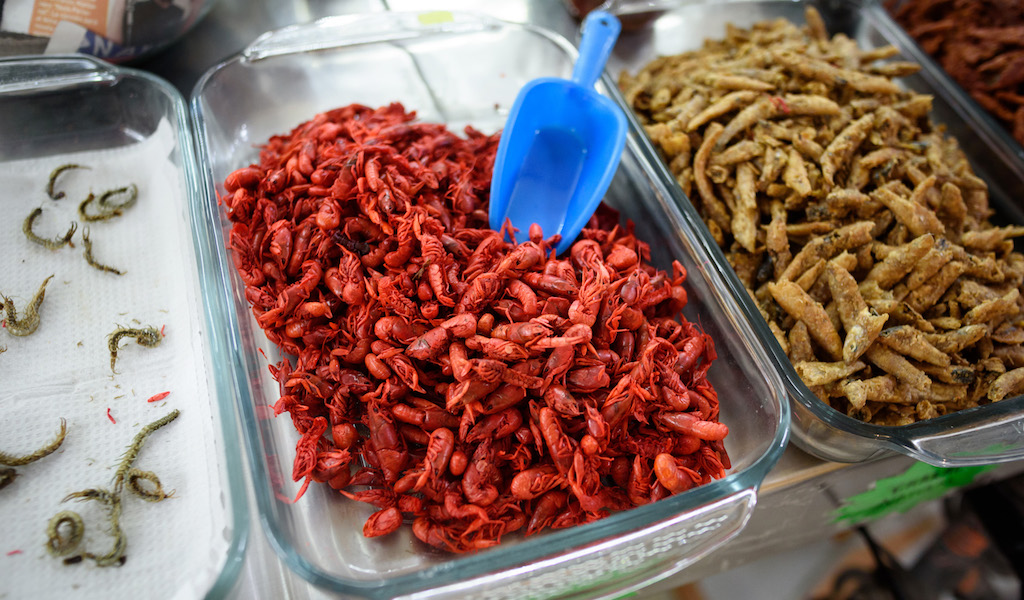
Culinary Innovation Unveiled: Navigating the World of Edible Insect Farming
Edible Insect Farming is emerging as a novel and sustainable solution in the quest for alternative protein sources. This article delves into the fascinating realm of insect farming, exploring its nutritional benefits, environmental advantages, and the culinary innovations driving its integration into modern diets.
Nutritional Riches in Every Bite: Unlocking the Power of Edible Insects
Edible insects are a nutritional powerhouse, boasting a high protein content, essential amino acids, vitamins, and minerals. Cricket flour, made from ground crickets, is gaining popularity as a protein-rich alternative to traditional flours. Edible insects provide a sustainable source of nutrition, addressing global concerns about food security and protein production.
Sustainability at the Core: The Environmental Advantages of Insect Farming
Edible insect farming stands out as an environmentally sustainable practice. Compared to traditional livestock farming, insect farming requires significantly less land, water, and feed. Insects such as crickets and mealworms are efficient converters of feed into protein, producing minimal greenhouse gas emissions. Embracing insect farming contributes to sustainable food systems and reduced ecological impact.
Culinary Delights: Innovations in Edible Insect Cuisine
The culinary world is witnessing a creative revolution with the incorporation of edible insects into various dishes. From cricket protein bars to mealworm pasta, chefs and food innovators are exploring the versatile use of edible insects. Their mild, nutty flavor profile allows them to seamlessly integrate into both sweet and savory dishes, offering a unique and sustainable culinary experience.
Overcoming the “Yuck” Factor: Shifting Perceptions Through Education
While edible insects offer numerous benefits, overcoming the cultural aversion or “yuck” factor is a challenge. Education plays a crucial role in shifting perceptions. Highlighting the nutritional value, environmental advantages, and the culinary potential of edible insects helps create a more informed and receptive consumer base.
Scaling Up: Edible Insect Farming for Global Impact
As interest in edible insects grows, the challenge becomes scaling up production to meet global demand. Innovative farming practices, such as automated vertical farming systems, are being explored to enhance efficiency. Scaling up edible insect farming holds the promise of providing sustainable protein sources for a rapidly growing global population.
Regulatory Landscape: Navigating the Path to Mainstream Acceptance
For edible insect farming to become a mainstream practice, navigating the regulatory landscape is crucial. Many regions are now recognizing the potential of insect farming and developing guidelines for its production and consumption. Clear regulations contribute to consumer confidence, facilitating the integration of edible insects into mainstream food markets.
Bridging Culinary Traditions: Insects in Global Cuisines
In many cultures, edible insects have been a part of traditional diets for centuries. Embracing these culinary traditions can foster wider acceptance of insect-based foods. Integrating insects into global cuisines not only adds diversity to culinary experiences but also preserves cultural heritage while promoting sustainable food practices.
Insect Farming Entrepreneurship: Nurturing a Growing Industry
The rise of edible insect farming has given birth to a new wave of entrepreneurship. Insect farmers, product developers, and chefs are contributing to the growth of the industry. Supporting these ventures through research, investment, and market access is essential for nurturing a flourishing edible insect farming sector.
The Future Feast: Exploring the Potential of Edible Insect Dining
As edible insect farming gains momentum, the future holds exciting possibilities for insect-based dining experiences. Restaurants specializing in insect cuisine, insect-based food festivals, and a diverse range of insect-infused products are on the horizon. Embracing these innovations can redefine culinary landscapes and contribute to a more sustainable and resilient food future.
To explore the captivating world of Edible Insect Farming and its role in shaping the future of sustainable nutrition, visit Edible Insect Farming. Discover the nutritional benefits, environmental advantages, and culinary innovations driving this culinary revolution.



